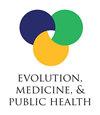卫生保健专业人员的病原体厌恶与人际偏见相关
IF 3.3
3区 医学
Q2 EVOLUTIONARY BIOLOGY
引用次数: 0
摘要
背景和目的病原体回避是一个基本动机,它塑造了人类行为的许多方面,包括对与疾病有刻板印象的群体(如移民、外群体成员)的偏见。这种联系仅在便利样本中进行了检查,并且尚不清楚病原体避免过程如何在经历长期和高度病原体威胁的人群(如卫生保健专业人员)中运作。我们研究了医疗保健专业人员是否表现出与一般人群中记录的病原体厌恶和群体间偏见之间相同的联系。参与者(N=317;采用滚雪球抽样法,招募了210名医疗保健专业人员进行在线调查。参与者完成了三领域厌恶量表来评估病原体、性和道德厌恶。然后,参与者对一个虚构的移民群体(“克拉斯尼人”)的看法进行评分,并对他们认同群体约束道德价值观的程度进行评分。结果与对照组相比,医疗保健专业人员报告的病原体厌恶水平较低,但性或道德厌恶水平较低。然而,无论职业如何,较高的病原体厌恶程度与认为克拉斯尼人不太讨人喜欢和更不干净有关。此外,无论职业如何,较高的病原体厌恶程度与对群体约束道德价值观的更大认可相关,尽管医疗保健专业人员报告的群体约束道德价值观的总体认可程度高于对照组参与者。结论和意义尽管医疗保健专业人员表现出较低水平的病原体厌恶,但他们在病原体厌恶和人际偏见之间表现出与对照组参与者大致相同的关系。这种关联的一个实际含义是,病原体回避动机可能有助于不公平的病人治疗在医疗保健设置。本文章由计算机程序翻译,如有差异,请以英文原文为准。
Pathogen Disgust is Associated with Interpersonal Bias Among Healthcare Professionals
Abstract Background and objectives Pathogen avoidance is a fundamental motive that shapes many aspects of human behavior, including bias against groups stereotypically linked to disease (e.g., immigrants, outgroup members). This link has only been examined in convenience samples and it is unknown how pathogen avoidance processes operate in populations experiencing prolonged and heightened pathogen threat such as healthcare professionals. We examined whether healthcare professionals demonstrate the same link between pathogen disgust and intergroup bias as has been documented among the general population. Methodology Participants (N=317; 210 healthcare professionals) were recruited using snowball sampling to take an online survey. Participants completed the Three Domain Disgust Scale to assess pathogen, sexual, and moral disgust. Participants then rated their perceptions of a fictitious immigrant group (“Krasneeans”) and the degree to which they endorsed group-binding moral values. Results Compared to control participants, healthcare professionals reported lower levels of pathogen disgust, but not sexual or moral disgust. However, regardless of profession, higher pathogen disgust was associated with viewing Krasneeans as less likeable and more unclean. Additionally, regardless of profession, higher pathogen disgust was associated with greater endorsement of group-binding moral values, although healthcare professionals reported greater overall endorsement of group-binding moral values than did control participants. Conclusions and implications Although healthcare professionals demonstrated lower levels of pathogen disgust, they nevertheless exhibited largely the same relationship between pathogen disgust and interpersonal biases as did control participants. One practical implication of this association is that pathogen avoidance motives may contribute to inequitable patient treatment in healthcare settings.
求助全文
通过发布文献求助,成功后即可免费获取论文全文。
去求助
来源期刊

Evolution, Medicine, and Public Health
Environmental Science-Health, Toxicology and Mutagenesis
CiteScore
5.40
自引率
2.70%
发文量
37
审稿时长
8 weeks
期刊介绍:
About the Journal
Founded by Stephen Stearns in 2013, Evolution, Medicine, and Public Health is an open access journal that publishes original, rigorous applications of evolutionary science to issues in medicine and public health. It aims to connect evolutionary biology with the health sciences to produce insights that may reduce suffering and save lives. Because evolutionary biology is a basic science that reaches across many disciplines, this journal is open to contributions on a broad range of topics.
 求助内容:
求助内容: 应助结果提醒方式:
应助结果提醒方式:


